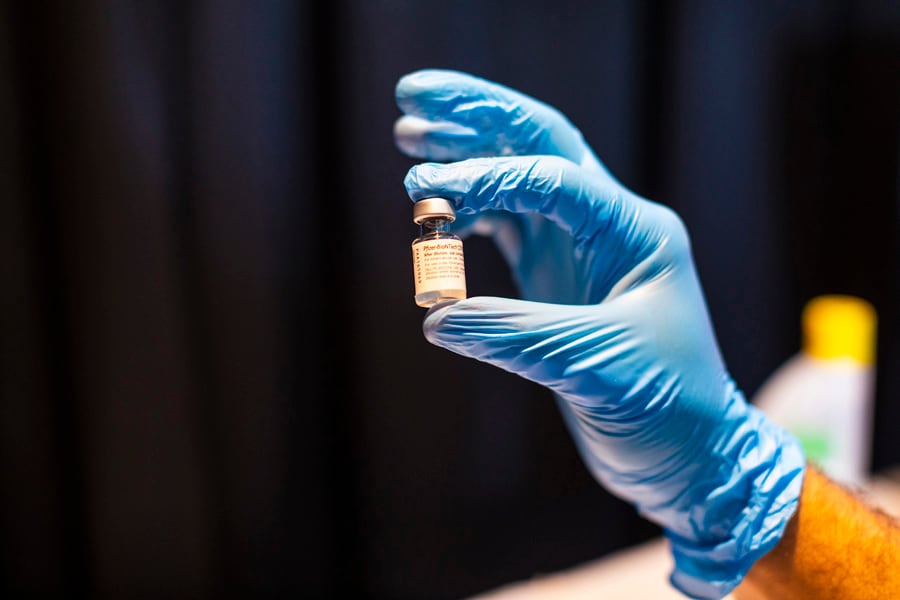
FDA fully approves Pfizer-BioNTech's vaccine, a first for a Covid-19 shot
The approval came as the US's fight against the pandemic has intensified again, with the highly infectious delta variant biting deeply into the progress that the country had made over the first half of the year
 A health care worker displays a vial of the Pfizer-BioNTech COVID-19 vaccine during a vaccination event in Miami on Aug 5, 2021. The Food and Drug Administration on Monday, Aug. 23, 2021, granted full approval to Pfizer-BioNTech’s coronavirus vaccine for people 16 and older, making it the first to move beyond emergency use status in the United States. (Saul Martinez/The New York Times)
A health care worker displays a vial of the Pfizer-BioNTech COVID-19 vaccine during a vaccination event in Miami on Aug 5, 2021. The Food and Drug Administration on Monday, Aug. 23, 2021, granted full approval to Pfizer-BioNTech’s coronavirus vaccine for people 16 and older, making it the first to move beyond emergency use status in the United States. (Saul Martinez/The New York Times)
The Food and Drug Administration on Monday granted full approval to Pfizer-BioNTech’s coronavirus vaccine for people 16 and older, a decision that is likely to set off a cascade of vaccine requirements by hospitals, colleges and universities, corporations and other organizations.
Within hours, the Pentagon, CVS, the State University of New York system and the New York City school system, among others, announced that they would enforce mandates they had prepared but made contingent on the FDA’s action.
The approval came as the nation’s fight against the pandemic has intensified again, with the highly infectious delta variant biting deeply into the progress that the country had made over the first half of the year. The Biden administration hopes the development will motivate at least some of the roughly 85 million Americans who are eligible for shots but have so far rejected them to change their minds.
The regulatory move goes a step beyond the emergency use authorization that the agency granted in December. More than 92 million people have already been fully vaccinated since then with Pfizer doses. Some who have rejected the vaccines, expressing fears that they are experimental, have said they wanted to wait until the agency spent more time studying their safety and fully approved them.
In a roughly 10-minute address on the approval, President Joe Biden said it should sweep away any lingering doubts about vaccines and spur more mandates. Appealing to corporate, state and local leaders, he said: “Do what I did last month. Require your employees to get vaccinated or face strict requirements.” In late July, he announced that all federal employees and on-site contractors must be vaccinated against the coronavirus or be required to submit to regular testing and other measures.
©2019 New York Times News Service







